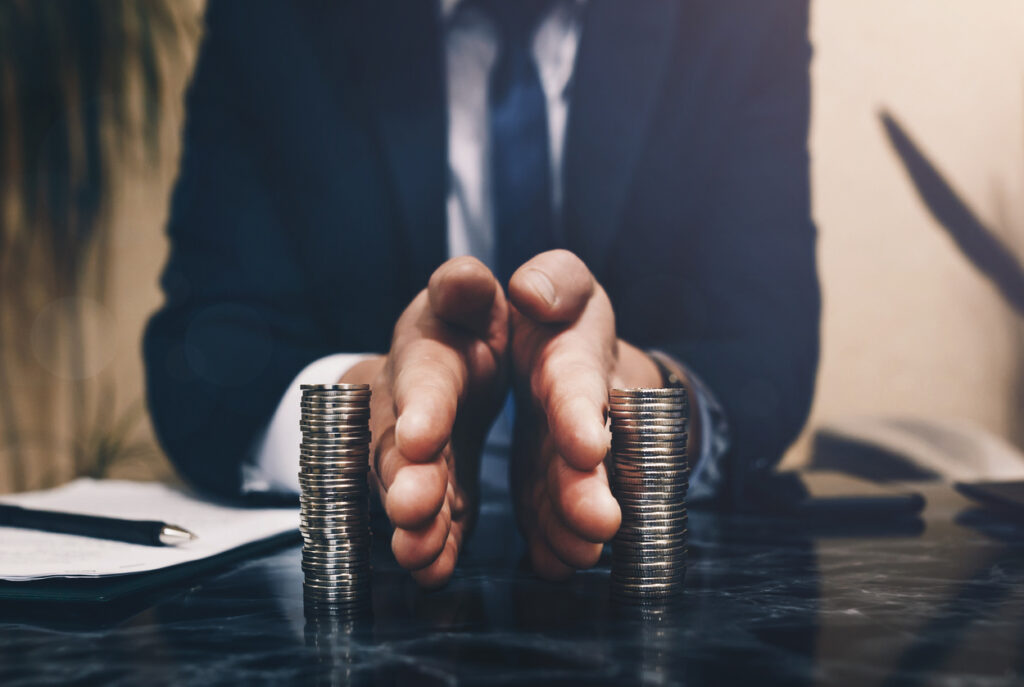They create the mayhme, you feel the pain, and they walk away owning more than ever.

The stock market’s been acting like it just chugged three espressos and walked into a horror movie—jittery, jumpy, and full of bad vibes. Thanks to the Trump tariffs making a comeback, investors are on edge, prices are swinging, and average folks are wondering if they should cash out, hold tight, or crawl under the bed with their savings. But while the rest of us panic, a certain group of people—the billionaires—are staying oddly calm. Why? Because chaos isn’t a crisis for them. It’s an opportunity.
They know how to stir the pot just enough to make the rest of us scramble… and then swoop in when everything’s on sale. It’s a cycle that’s been quietly playing out for decades, and most people never realize they’re part of the game. If you’ve ever wondered how the rich keep getting richer—especially during economic meltdowns—this might open your eyes wider than you expected.
1. They start whisper campaigns that spook the market.

Ever notice how suddenly everyone’s talking about a company going under or a sector about to tank? That’s not always coincidence. Billionaires have deep networks—people in finance, media, politics—and they know how to plant seeds of doubt, says Bob Lindquist at Safe Retirement Strategies. They don’t need a megaphone. A few quiet conversations in the right ears can snowball into full-blown panic. Once the media picks it up, average investors start selling in fear, driving prices down.
Meanwhile, the same billionaires who helped stir the anxiety sit back and wait for the dip to deepen. Then, when the chaos hits its peak, they quietly buy in. It’s like setting a house on fire, watching everyone run out, and then snagging it for half price. Most people are reacting to fear. Billionaires are profiting from it. And the best part for them? No fingerprints—just rumors that feel like “news.”
2. They dump shares fast to trigger a domino effect.

Big money doesn’t move quietly. When a billionaire or major hedge fund dumps a chunk of stock, the market feels it immediately. Other investors see the drop and assume something’s wrong. The herd mentality kicks in—everyone starts selling to avoid bigger losses, writes Sean Williams for The Motley Fool. It becomes a stampede. But what looks like a panic move is often a setup. Once the price tanks, the same billionaire can swoop back in and repurchase those shares at a massive discount.
They didn’t lose money—they repositioned. It’s psychological warfare at scale. The average investor feels like they’re making rational choices, but really, they’re reacting to moves that were engineered to trigger fear. If you’ve ever watched your retirement fund drop and wondered who’s benefitting, this is a big part of the answer. The market’s not always a reflection of value—it’s often a reflection of who’s playing the game better.
3. They fund “expert” analysis designed to mislead.

It sounds official. It sounds smart. But sometimes, it’s pure manipulation. Wealthy investors often support think tanks, financial media platforms, or research firms that release “objective” data skewed to benefit their positions, as reported by Eli Clifton and Ben Freeman for the Quincy Institute. These reports can cast doom over an industry they want to buy into—or hype up an asset they’re about to unload. When you hear an analyst on TV predicting a crash or boom, it’s easy to believe they know something you don’t.
But you have to ask who’s behind the message. Billionaires aren’t just reading the headlines—they’re writing them. The goal isn’t to inform the public; it’s to move the market just enough to make their next move more profitable. It’s subtle, polished, and totally legal. Meanwhile, everyday folks are adjusting their portfolios based on smoke and mirrors, never realizing they’re being played.
4. They short the market before sparking a crisis.

Shorting the market means betting that stocks will go down—and billionaires are experts at knowing exactly when and how to do it, according to Steven Desmyter in an article for Forbes. But here’s the sketchy part: some of them create the very conditions that make their short positions pay off. They might push for policy changes, drop damning reports, or quietly leak negative information that sends markets spiraling. While everyone else watches their investments shrink, billionaires are cashing in on the chaos they helped create. It’s a level of strategy that most people never even think about.
The average investor is playing checkers—trying to time the market, trying not to panic. Meanwhile, the billionaires are playing 3D chess. They don’t need the market to do well—they just need it to be predictable… and manipulatable. If it drops, they make money. If it rebounds, they make more. Either way, they’re rarely the ones hurting.
5. They pressure politicians into economic brinkmanship.

Behind every messy political standoff, there’s usually money—big money—egging it on. Billionaires fund campaigns, super PACs, and think tanks that influence lawmakers. So when you see Congress dragging its feet on the debt ceiling or trade wars heating up, it’s not always about principle. Sometimes it’s about creating instability on purpose. Markets hate uncertainty. Just the threat of government shutdowns, tariffs, or tax changes is enough to send stocks tumbling. And while most of us are worrying about our 401(k)s, billionaires are salivating at the chance to scoop up discounted assets.
They’re not worried about political fallout—they’re pulling the strings behind it. They play the long game and use political theater as a tool. If you feel like the economy’s always on the edge of something disastrous, that’s not accidental. It’s often a well-timed act with billionaires waiting in the wings to pounce on the fallout.
6. They buy distressed assets through shell companies.

You won’t see Elon or Bezos walking into a bankrupt retailer’s office with a briefcase of cash. That’s not how this game works. Instead, they use layers of legal entities—LLCs, shell companies, investment groups with generic names—to quietly buy up property, stocks, or entire businesses that have hit rock bottom. To the public, it just looks like another firm taking over. But if you dig deeper, you often find the same names pulling the strings behind the scenes.
These tactics let billionaires avoid scrutiny and competition. No one’s bidding against them because no one knows it’s them. By the time the public catches on, they’ve already bought everything worth buying. It’s stealth wealth-building, done in plain sight but hidden behind paper trails. And once the economy starts to recover? They’re sitting on assets they bought for a song—assets you probably helped build, but couldn’t afford to save.
7. They spark currency chaos to score on the rebound.

Currency markets might sound boring, but they’re gold mines for billionaires. When the dollar weakens or foreign currencies tumble, it sets off a chain reaction across global markets. Billionaires know this—and some help trigger the shifts. They might pull out of emerging markets, fund political destabilization, or back media that questions a country’s stability. That causes investors to panic and sell off local assets.
But while everyone else is running, the billionaires are already planning their reentry. Once the currency bottoms out, they flood back in, buying up real estate, businesses, and resources for a fraction of their former value. Then, when things stabilize (as they often do), they’ve doubled or tripled their investment. It’s a high-level hustle most people never see coming. You think it’s about inflation or foreign policy. But for billionaires, it’s just another playground.
8. They profit from fear-driven selloffs—and then brag about it.

It’s almost a ritual now. Panic hits the market, people sell off in a frenzy, and a billionaire pops up in the news saying, “We took advantage of the opportunity.” They’re not even trying to hide it. Fear-based selloffs are golden for the rich. When regular folks dump their stocks in a panic, prices drop fast. And who has the cash ready to scoop up those deals? Billionaires. They’re sitting on war chests, waiting for the exact moment everyone else folds.
It’s the same game over and over: fear, selloff, scoop-up, rebound. The public feels like they lost. The billionaire walks away with a smirk and a fatter portfolio. It’s almost offensive how casually they talk about it—like crashing the economy is just a clearance sale event on their calendar. If it feels unfair, that’s because it is. But it works, and they know it.
9. They use media appearances to shift sentiment.

You’d think billionaires appearing on financial news would be about sharing wisdom. Not always. Sometimes, it’s about market manipulation with a smile. A casual comment like “the worst is yet to come” can spark a market drop. A vague hint about optimism can send prices soaring. These soundbites get clipped, repeated, and spread across every platform. People react. Stocks move. And the billionaire walks away with exactly what they wanted. They know their words carry weight—and they use that to subtly influence timing.
They might have sold before the warning or bought before the optimism. It’s not illegal. It’s not always even dishonest. But it is strategic. Every headline they make is a tool. Most of us take their words at face value. Billionaires treat every mic like a lever that can move millions—sometimes billions—of dollars their way.
10. They buy up media companies to control the narrative.

When you own the platform, you don’t need to manipulate the message—you are the message. Many billionaires have bought media companies outright or invested heavily in them. Why? Because shaping public perception shapes the market. Coverage influences consumer confidence, investor behavior, and political decisions. And when you control the tone, the emphasis, or even what gets covered at all, you get to decide how the story unfolds.
Maybe a crisis gets downplayed until they’ve finished buying up assets. Or maybe a threat gets hyped up just enough to trigger a selloff. Either way, the outcome benefits them. Media ownership isn’t just about power—it’s about profit. When you can guide public emotion at scale, you can also guide financial trends. Regular folks are just trying to figure out what’s true. Billionaires are busy writing the script.
11. They quietly hoard cash while encouraging others to “stay invested.”

“Time in the market beats timing the market,” right? That’s the advice we hear all the time. But here’s the catch—while they’re telling you that, many billionaires are quietly moving to cash. They’re parking billions on the sidelines, waiting for things to crash. They’re not staying fully invested through downturns. They’re preparing to buy when everyone else is bleeding.
And the advice they give on CNBC? It’s often tailored to maintain calm and keep the average person holding the bag. It’s not illegal—it’s just clever. They understand psychology, and they know panic creates opportunity. So they’ll play the reassuring expert on camera, then move billions behind the scenes. You won’t know what happened until the smoke clears and they’ve already doubled their wealth. It’s not personal. It’s just business… but you’re still the one paying the price.
12. They coordinate with each other to avoid competition.

Billionaires don’t like bidding wars. They prefer quiet deals and insider handshakes. In many industries, they talk—informally, off the record, through intermediaries. They know when someone’s planning to buy a distressed company, and they stay out of each other’s way. Or they collaborate through investment firms and private equity groups to go in together. This way, they don’t drive prices up by competing.
They divide and conquer. You might think it’s a free market, but behind the scenes, it’s a club—and you’re not in it. These backdoor alliances help them corner industries, buy up struggling businesses, and gain control without resistance. It’s not collusion in the criminal sense—it’s just strategy with a smile. While the rest of us are hustling to make a single investment work, they’re mapping out who gets what before the deal even hits the headlines.
13. They wait for the rebound, then ride the wave to even greater wealth.

After all the chaos, fear, and buyouts, one thing is certain: the market eventually bounces back. And guess who’s holding all the good stuff when it does? The billionaires. They wait patiently, fully loaded with cheap assets, while the rest of us are still licking our wounds. When recovery hits, they ride the upswing like a pro surfer on a perfect wave. Real estate values soar, stocks rebound, businesses regain profitability—and their early investments explode in value.
They didn’t just survive the crash. They thrived because of it. That’s the final stage of the game: letting time do the work while wealth compounds. Most people barely recover. Billionaires? They emerge richer, more powerful, and ready to do it all again next cycle. It’s not a fluke. It’s a formula. And once you recognize the pattern, it’s hard to unsee.
